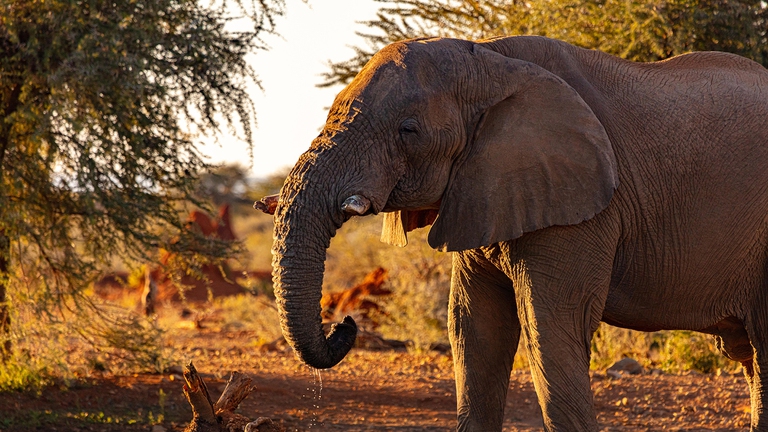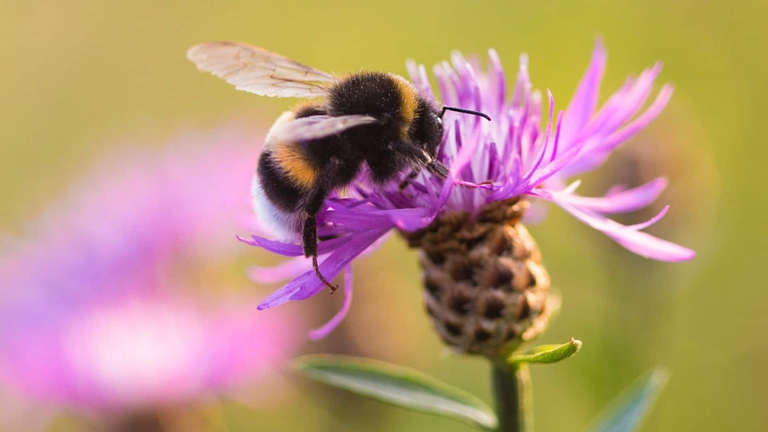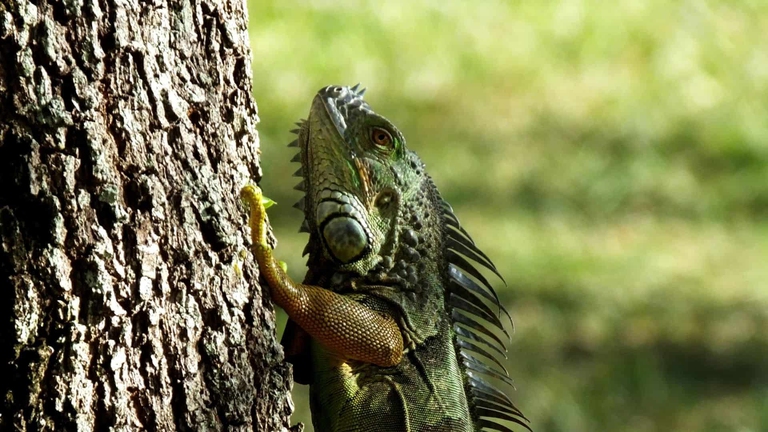https://www.lifegate.it/coscienza-animale
- |
While Francesco Lollobrigida, Minister of Agriculture, Food Sovereignty and Forests, argued on the occasion of the Fratelli d'Italia programmatic conference on 27 April that “Man is different.It is the only sentient being and there are no others", the state of Washington, in the United States, had recently banned the intensive farming of octopuses, considered "unethical and cruel”.Why it's certain at this point that these cephalopod molluscs feel pain and they can have a conscience, perhaps even complex enough to make him experience dreams or nightmares.And if it seems implausible to you, know that they are not the only ones which might surprise you.
Elephants greet each other, insects play, crows count
In fact, the most recent studies demonstrate that elephants greet each other intentionally, changing tone if the interlocutor is distracted.Some insects play, like the bumblebees, which apparently even make wooden spheres rotate and slide for pure fun, without any practical purpose. Crows know how to count at least up to four, fruit flies use REM sleep to reduce stress, Orcas take several days to grieve and perform rites similar to funerals.The list could last several more lines and clearly shows that the human being, it is by no means the only animal to “feel” something.This is also confirmed by the suffering behaviors exhibited in intensive farming, now known to the general public, as also described in the recent documentary Food for Profit by Giulia Innocenzi and Pablo D'Ambrosi.To convince Minister Lollobrigida, however, who winks at hunters and traditional supply chains, depriving animals of dignity on which we actually commit abuse and violence, we should find a univocal explanation to the question "What does it mean to be sentient"?

What does it mean to be sentient and what is meant by “animal consciousness”
The scientific community has been asking this for some time.According to Animal Ethics, a sentient subject is capable of having positive and negative experiences, who is more or less aware of what he experiences.
A good clue to answer the question has arrived on April 19th last, by a coalition of 39 scientists from around the world who during the conference The emerging science of animal consciousness at New York University made public the New York Declaration on Animal Consciousness, a voluntarily signed document already signed by eminent biologists and philosophers centered on the most basic type of consciousness, known as "phenomenal consciousness", typical of those organisms that have the ability to experience basic sensations such as pain, pleasure or hunger, but not necessarily more complex mental states such as self-awareness.As strange as it may sound, in fact, the two levels do not always coincide.
According to experts, "if an organism has an awareness of phenomena, then 'it feels like something' to be that organism."And for years scientists have been convinced that only some species, those similar to us, belonging to the group of great apes, could have a conscious experience.Recently, with new increasingly convincing discoveries, it was born instead a new interdisciplinary field, which draws on expertise in neuroscience, psychology, evolutionary biology, animal welfare and veterinary sciences, social sciences and humanities, which has brought often unexpected results even in animal groups considered simpler or less "intelligent".In fact, the Declaration states that "subjective experience requires more than the simple ability to detect stimuli, without requiring sophisticated capabilities such as language or human-type reason.
Phenomenal consciousness is a raw feeling, an immediate sensory or emotional experience that can be shared by humans and many other animals."As is obvious, human linguistic and rational abilities they allow us to have forms of experience that other animals lack (e.g. a linguistic “inner monologue”).Likewise however, many other animals could have forms of experience unknown to us.

Which animals can be sentient and how can we find out
With the results of the last ten years of research in hand, the expert signatories of the New York document state that "there is at least a realistic possibility of conscious experience in all vertebrates, including reptiles, amphibians and fish, and in many invertebrates, including mollusks cephalopods, decapod crustaceans and insects”, animal groups with which we have always perceived a distance of sorts too large to be filled.But the "realistic possibility" cited in the Declaration is now more than a hypothesis:a thesis supported by ten significant examples described in the document, which help us to better understand the various types of experiences.
Just to name a few, a 2024 study analyzed how crabs balance their aversion to bright light with their aversion to electric shock.Under neutral conditions, crabs enter a dark shelter to escape bright light, but may prefer light if the proposed alternative is to enter a shelter where they have previously received an electric shock.And other animals too, like rats, iguanas and bees, are able to process and accept difficult compromises, dependent only on developed mnemonic skills.Or even the cleaner fish, which surpass the “mirror mark” test.He proved it a series of studies ducts between 2019 and 2023, according to which these animals, seeing a new mark on their body in a mirror, undertake to remove it. Crayfish experience states of anxiety who improve with anxiolytics, Garter snakes recognize their own scent, octopuses avoid pain and appreciate the relief provided by lidocaine, while cuttlefish are able to remember past events, including specific details, such as the location of the event and the time that has elapsed since the events took place.

What changes with the New York declaration
All these clues therefore suggest that researchers may have overestimated so far the degree of neural complexity required for the development of consciousness, but emotions are not necessarily linked to particular brain structures.The document represents the new scientific consensus on the subject of "sentience", a topic increasingly felt by public opinion, attentive to animal rights and welfare.The declaration also updates the parameters that had been established by the last available document on the matter, the "Cambridge declaration on consciousness” in 2012, which stated that “a range of nonhuman animals, including mammals and birds, have the capacity to exhibit intentional behavior” and that “humans are not unique in possessing the neurological substrates that generate consciousness.” .The new statement, led by Kristin Andrews from York University, Jeff Sebo from New York University and Jonathan Birch of the London School of economics and political science, broadens the field of study and is formulated with greater attention compared to the previous one.Yet, even today we cannot speak of "certain evidence", precisely because the very nature of consciousness is hotly debated, between those who want to establish rigid classification criteria and those who want to avoid the risks of anthropomorphization.However, experts believe it is correct to interpret how “proofs” of conscience these demonstrations of learning, memory, planning, problem solving, and self-awareness, because the same behaviors, if found in a human or another mammal, would be accepted and explained as the result of an undoubted conscious elaboration.
Animal rights guidelines
In short, the evidence reported in the document they can no longer be ignored in any area.“If there is even just a realistic possibility of conscious experience in an animal – the experts conclude – it is irresponsible to ignore this possibility in decisions, including political ones, that concern that animal”.As he already mentioned Article 13 of Title II of the Treaty on the Functioning of the European Union, which in relation to animal welfare states:“the Union and the Member States must, since animals are sentient beings, pay total attention to their needs”.Following the 2022 amendments to the Italian Constitution, our law also regulates, at least on paper, ways and forms of animal protection.
And researchers will continue to advance our knowledge of the more complex aspects of consciousness.It will be up to political decision makers though make sure that your efforts are not in vain, matching the discoveries of science with conscious and respectful actions and strategies to protect the rights of all living organisms.Even the most unexpected ones.
